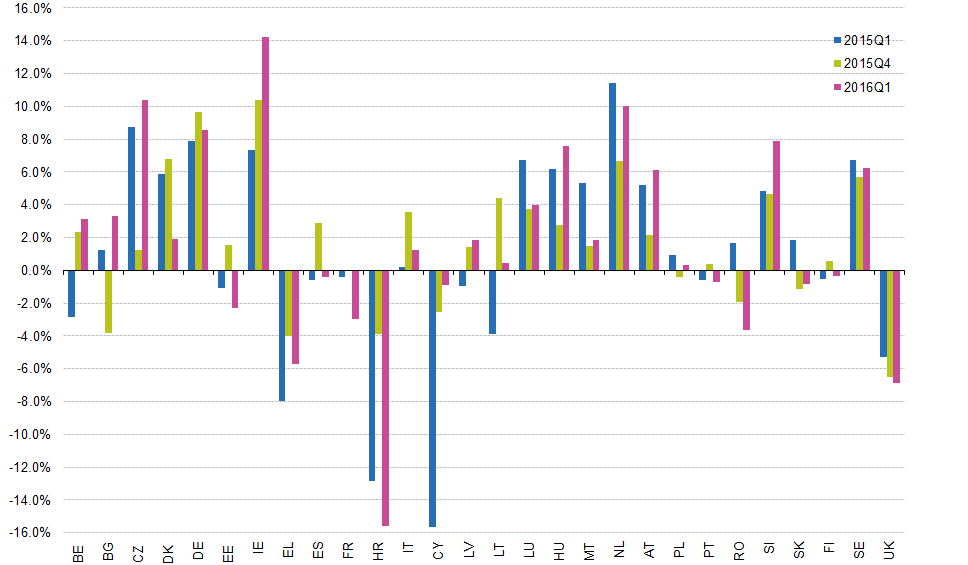I'm confused. Brexiters argue the Germans, Italians and French will still want to sell us their cars, so continued free trade with the UK is in their best interests. But we'll have to negotiate this (with an EU unwilling to make leaving easy) by threatening to make their cars more expensive for British people to buy. We'll do this because WE need to make imports more expensive to try to restore our balance of payments. Are Brits prepared to pay more for their Audis, Fiats and Renaults in order to make British cars more appealing, or do Brexiters want to pay more in order to punish them for taxing our insurance and banking products? Either way, imports will cost more.
While in the EU, we buy their cars because we like the choice and don't want our own government to tax them. Indeed it would be better for British car manufacturing if we went back to the good old days of being encouraged to buy cheaper British cars (made by foreign owned factories). Is that what Brexiters want? To threaten to increase the price of the things we like to buy cheaply from them if they tax our stuff?
So why have tariffs? Whilst it's well publicised that 44% of our exports are to the EU and only 8% of theirs are to us, unfortunately the money flow is in the other direction as can be seen from the chart below. Note the UK has by far the worst balance of trade in the whole of the EU as a percentage of GDP!
Current account balances of the EU Member States as share of GDP (%) 2015 Q4
While in the EU, we buy their cars because we like the choice and don't want our own government to tax them. Indeed it would be better for British car manufacturing if we went back to the good old days of being encouraged to buy cheaper British cars (made by foreign owned factories). Is that what Brexiters want? To threaten to increase the price of the things we like to buy cheaply from them if they tax our stuff?
So why have tariffs? Whilst it's well publicised that 44% of our exports are to the EU and only 8% of theirs are to us, unfortunately the money flow is in the other direction as can be seen from the chart below. Note the UK has by far the worst balance of trade in the whole of the EU as a percentage of GDP!
Current account balances of the EU Member States as share of GDP (%) 2015 Q4
Tariffs are designed to reduce outflows by making imports more expensive. In other words our economy NEEDS tariffs with the EU to make their stuff more expensive in order to encourage we Brits to buy British instead of German and French etc.
So under a Brexit government in financial difficulty (as agreed by Brexiters and Remainers alike), wouldn't they be tempted to implement tariffs, not fight for them to be removed in order to improve our balance of trade?
If Brexiters knew their BMWs and Renaults would cost a lot more to encourage them to buy British, would they still vote to leave? I very much doubt it.
But if you're still unsure, why risk a more uncertain future than the one we've got?
I also like employing people who want to work as hard as possible for as much as possible, not as little as possible for as much as possible. Migrants are great for Britain. Love 'em!

Comments
Post a Comment
Thanks for taking an interest.